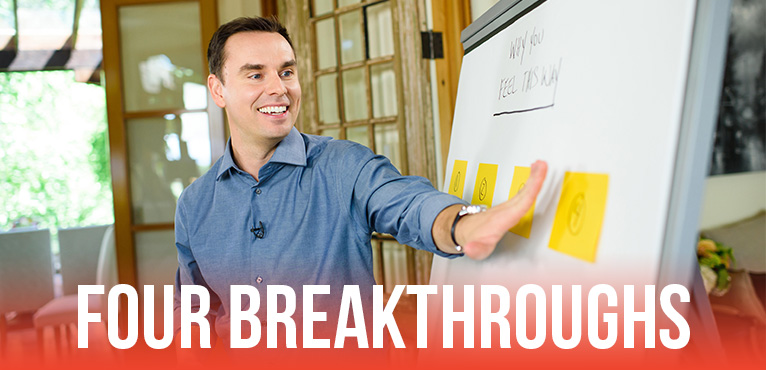Summary
Have you ever set an important goal, only to forget about it or lose momentum shortly after? It’s not that you didn’t want the goal enough. Rather, other things may have come into your life – new opportunities, obligations or distractions that eclipsed the goal you were once excited about.
This episode is about HOW to keep your important goals on the front burner of your attention so you accomplish them more often. Try these three simple strategies to stick to your goals more often:
#1. Visualization practice. When you first decided to pursue a goal, you dreamt about it and visualized it to the point where it felt real. In order to stick to your goals, make sure to do that as a daily visualization practice. Wake up in the morning, take a couple of deep breaths, close your eyes, and visualize yourself striving, struggling, and then attaining your goal. Picture yourself struggling happily and crossing the finish line. Follow this technique daily.
#2. Weekly scoring. High performers self-monitor more than underperformers. This means it’s vital to review your goals and rate your performance on a weekly basis. Look, life can be chaotic. If you’re not monitoring and scoring yourself on your important goals they’ll quickly fall to the backburner.
#3. Social support. One of the best ways to stick to your goals is to tell other people about those goals and get them involved in striving with you. The people in your life should know what you’re trying to accomplish, why you’re trying to accomplish it, when you want to accomplish it, how you want to go about pursuing the goal, and how they can help. Without others who will give you feedback, cheer you on and keep you accountable, it’s likely you’ll stop pursing your goals.
Watch the video above for the full lesson so that you can reach high performance and continue living #TheChargedLife!
Want a text message when I release new episodes? Just text “podcast” to 818-492-1802. I’ll also text you two of our most popular episodes, keep you up to date with my books and events, and alert you when I’m in your area speaking or visiting.
Like this episode? Please share it! My blog, videos and podcast are ad-free ONLY because you share my work!
Complement with these previous posts:
How To Develop a Growth Mindset
How to Re-Discover Your Passion
Opportunity Overwhelm? Do this.
Am I Dreaming Too Big?
4 Ways to Become More Disciplined

Related quotes to consider:
[Follow Brendon on Instagram for tons of great quotes]
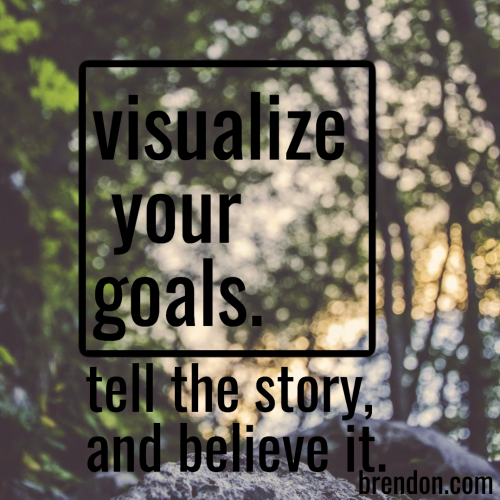
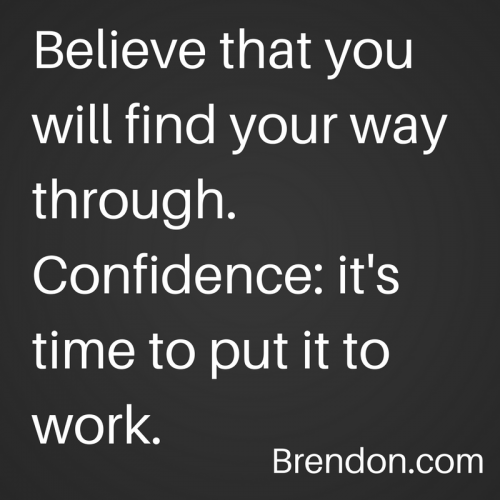
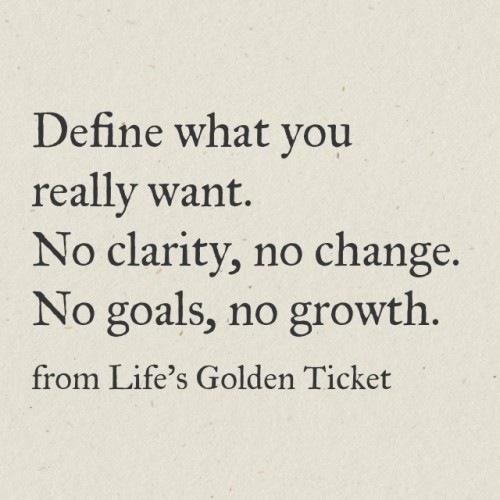
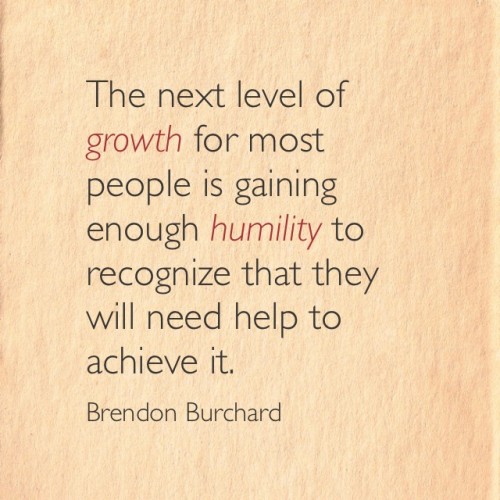
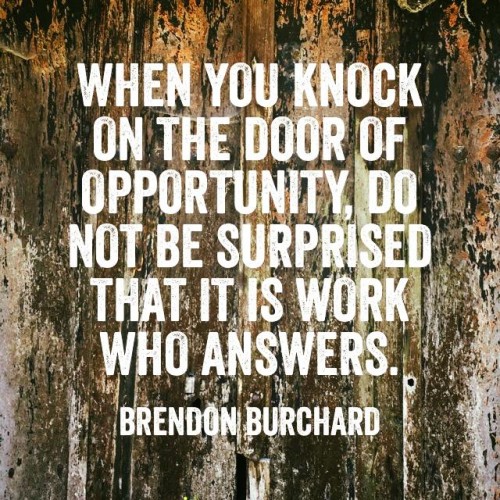
FULL TRANSCRIPT
[The following is the full transcript of this episode of The Charged Life with Brendon Burchard. Please note that this episode, like all TCL episodes, features Brendon speaking extemporaneously–he is unscripted and unedited. Filmed in one take, The Charged Life has become one of the most viewed unscripted, direct-to-camera self-help series in the history of Youtube. It has also been the #1 Podcast in all of iTunes and is regularly in the top podcasts in Self-Help and Health categories around the globe. Subscribe to the free motivational podcast on iTunes or Stitcher.)
Have you ever noticed too often you set a goal and then you forget about it later on? It’s not that you didn’t want the goal,. It’s just that other things came into your life, you got busy and maybe what you had on the front burner of your life as a goal ended up getting put on the back burner.
How do you set up your life in a way to prevent that from happening?
Are there any goals from the last six months that you literally just forgot about? Did you forget that you were trying to lose that weight, and end up ordering the chow mein anyways?
Most people believe that they didn’t really want it or that it’s a prioritization thing. It’s not that. Sometimes, when we lose touch with what we want because we’re not putting it in front of us often enough, we move on to the next thing. The great goals that we set up fall by the wayside.
So, how can you prevent that?
Well, let’s share 3 ideas on this.
First and foremost, let me give a little context and hope that these things are true in your life. Before going into the 3 tips, my understanding is that you have some goals. Let’s just assume that you have some goals and you’ve mapped those goals. So, you’ve got the goals, you’ve mapped them, and you know what you want.
#1: Visualization practice. When you first had that goal, or that dream, that big desire, I bet you sat in bed thinking about it, dreaming about it and you could practically taste it. You wanted it so bad. You know you could see it in your dreams, and during the day if you talked to other people about it, it felt real. It was a goal you were going to go after.
What happens when people often set a goal, is that they open up the calendar and schedule it as well as strategize around how to measure their performance. They tactically fill out their calendar or fill up their day planner and it sounds like it’s going to happen, right? But it doesn’t.
Why? You could have lots of things on our to-do list and all over your calendar, and yet never feel like really going for the goal. That’s because you’re not emotionally charging yourself up for that goal on a continual basis. That’s why it falls aside so quickly; you got really excited about it but then got distracted by a range of other opportunities, ideas, interests and distractions.
You have to set a daily visualization practice.
Here’s the simplest technique for you if you’re not already doing it. Each morning, before you even get out of bed, just wake up and as soon as you wake, take a nice couple of deep breaths, close your eyes and visualize yourself striving for your goals, struggling for your goals and then attaining your goals.
For example, I’m an author. I write books. So, I will visualize myself writing at my desk.
The most important part about visualization is not to see yourself cross the finish line. It’s to see what do you do when the struggle happens. To maintain.
Another example: if you want to run a marathon, a lot of people will encourage you to visualize yourself crossing the finish line.
Rather than just visualizing yourself crossing the finish line, you should visualize yourself getting up for months and months and months, going for those morning runs, practicing. Visualize yourself when you are running the marathon. Right in the middle of marathon, when you’re at mile 13 and you’re beginning to doubt whether or not you can finish the face.
Visualize yourself overcoming that struggle. That’s where an emotional anchor is created.
As a writer, I visualize myself opening up that box of books once they’re published. When I open up that box and I get that first book, I realize that this is real. I’ve been doing that visualization technique for the last 6 months as I’m trying to finish my next book. So, I’m not just talking about this conceptually. I do this in my own life and I encourage you to do that.
If you keep having goals that fall off on to the way side or get relegated to the back burner, it’s because you’re not revisiting them. You need to revisit it, visualize it, and see it. Really make it a visual thing. Tell the story. See it in your mind.
#2 Weekly Scoring. Every week, on a Sunday, I think about all the goals of the week I just had and all the goals of the week I have coming up, and I literally measure my performance from 1 to 10.
I think it’s really important that you take a look at your goals on a weekly basis and rate your performance.
How was your performance? How did you do?
The purpose of this is not to just see if you’ve accomplished your goals. Because you know what? Life comes up.
Your kid gets sick. You get tired. Some big emergency happens in the business. Something will always come up that will refrain us from achieving every goal that we have every single week. But it’s a good idea to say, “Where did I mess up? Where did I quit? Where did I stop?”
This isn’t about berating yourself or being hard on yourself. If you’re not looking at your goals on a weekly basis at least, what are the odds that you will keep working towards them? Just because there are to-do lists in your calendar doesn’t mean you’re going to keep going after them. That’s why I like to put those things together. Visualize in the morning and at the end of every single week, and look at how you’re doing in the goals.
#3 Get social support. Whatever your goal or dream is, you need other people to know about that dream. They should know what you’re trying to accomplish, why you’re trying to accomplish, how you’re trying to accomplish it, when you’re trying to accomplish it, and what you are willing to do to accomplish it.
And they should know their role in it. If you have a big dream and your spouse doesn’t know those things I just talked about, then you’re not even in the game of goals yet.
An unspoken goal is just a hope.
You need to speak about your goals with others and share your action plan with others. You need people who are going to be your champions and comrades along the way.
If you are trying to lose weight, you need to have a workout buddy. If you’re trying to finish your book, you need to have an editor or a writing buddy. If you’re trying to get that promotion at work, you need to have a mentor or another peer who is also going for that promotion. You’ve got to socialize both your learning and the sharing of your goals because if those two things aren’t happening, then the odds of you sticking and staying on track are very low because you will find something else to do.
Your priorities may shift, or you may forget what you were passionate about. And you will let your goals go by the wayside.
But the nice thing about your friends, family and peers is that they want to see your goals attained. They want to see you live your dreams and they’re going to support you in a range of ways as you pursue your goals.
You want people bugging you and giving you crap and cheering you on as you’re chasing after your goals and that only happens if you share those goals with others.
I hope these 3 simple ideas served you. You deserve to have an extraordinary quality of life. I know you know that. We all want that. It’s impossible without goals and it’s really definitely impossible forever if you don’t start keeping those goals on the front burner. The way to do that is to visualize your goals, to assess and evaluate yourself, and to get other people involved. That’s how you’re going to achieve more goals and that’s how you’re going to live, The Charged Life.






